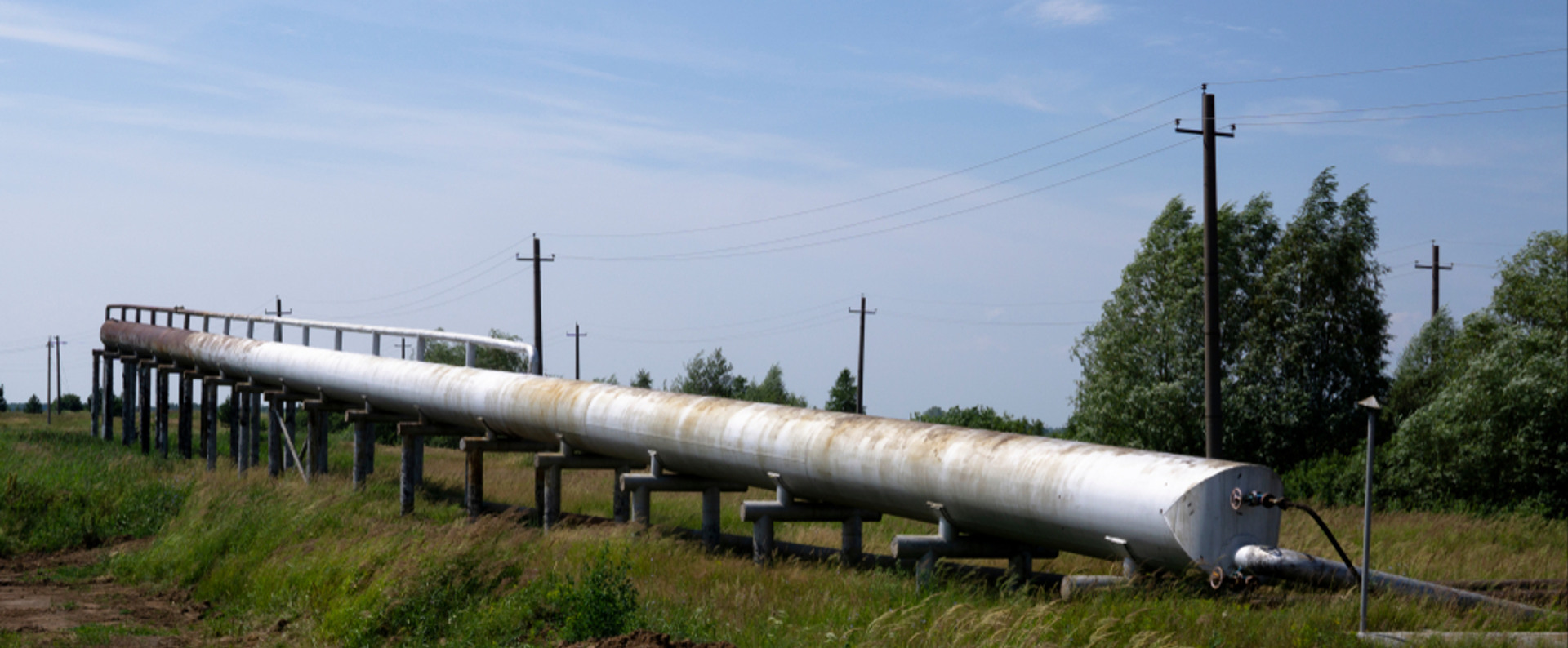Crude oil is a mixture of gas, water, oil, emulsion and several other impurities. To become a marketable product, the crude has to be processed with various methods. From the well, the crude is pumped to centralized plants. The separation process follows certain steps, as described below.
- Starting with the so-called gathering station. Here the oil from different wells is collected.
- In the next step gas, oil and watery substances are separated. The video shows a 3-phase separator where the crude oil is constantly flowing in. The design of the tank leads to a steady outflow of the gas in the upper part, and water separated from the oil in the lower part. The video shows a simplified description of the processes in the 3-phase separator. (If there is no gas in the crude oil a 2-phase separator is used, based on the same principle as the one in the video.)
In older plants or plants with older systems, static separators are in use. This includes a row of big tanks for a batch-wise separation. After a batch of crude oil has been filled in one of the tanks, time and gravity work together to separate oil and water.
The emulsion is an oil-water mixture which couldn’t be separated in this process step. The fewer emulsion is left, the more efficient the separator works.
- The left-over emulsion is treated in an Emulsion Treatment Plant. Heat and chemicals are used to finally separate oil and water.
- If there are residues of salt in the oil, it removed in a desalter.
- The water is cleaned further (traces of oil) and now can be used for different applications before being disposed of.
- The oil is now ready for further processing.
Merus improves all the steps of this separations.
In each of these process steps Merus Rings improve the separation and help to get cleaner oil, cleaner water, less emulsion, faster throughput, less need of chemicals. This sounds to good to be true? Looking at the short video above you might have noticed, that the amount of emulsion has been reduced. After installing a Merus Ring the separation is facilitated and therefore needs less energy and time.
Saving operating costs through increased efficiency.
Speeding up the separation and improving all the related processes, has a direct impact on the costs. The calculations of the savings are mostly done by calculating the savings in service and chemicals. By tackling this bottleneck the whole process is improved which often increases the capacity of the whole plant. To calculate these savings is very difficult, so it has to be estimated individually for each case.
Often chemicals used in the emulsion treatment cause substantial costs. These can be reduced by about 50% when improving the efficiency of the separation.

